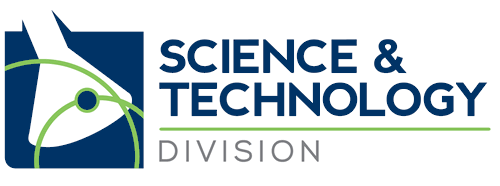Science and Technology Division events and sessions
for a full list of sessions, see here
1. Annual Science and Technology Division Meeting
THURSDAY ★ 12:30PM – 1:00PM
2. S&TD Dinner
Please join us for dinner at La Tomate Italian Bistro to see old friends again and to meet new ones.
Cost: $58.00 per person (includes tax and gratuity)
Payment must be received by October 16. For details and to reserve your place, CLICK HERE.
THURSDAY ★ 7:30PM
3. AST Day: AST-5 Build a WordPress Website for Your Translation Business (8 spots left, Oct 3 2017).
AST-5
Building WordPress websites for your translation business, given by Mery Molenaar, CT.
Learn the ins and outs of building an outstanding website for your translation business using WordPress. WordPress is a free and open-source platform for the construction of websites and blogs. In this hands-on course, attendees will be introduced to the platform. Mery will walk them through the process of building a website step-by-step. Participants will learn how to select a theme, build pages, set up a navigation menu, add images, and include really cool features using free plugins.
The goal of the workshop is that all participants leave with a basic, but fully functional website in place. Participants must bring their own laptops, have a domain name, and have WordPress already installed. Instructions on how to create a domain name and install WordPress will be provided in advance.
This is an introductory workshop but will answer more advanced questions, if needed. No experience with WordPress or any programming or special skills are required.
Limited to 25 participants
Language-Neutral; Beginner
Earn 3.0 ATA CEPs
Attendees are required to bring a laptop
Wednesday, October 25, 8:30am-12:00pm
Networking Break, 10:00am-10:30am
Course fee: $150; Register Today!
Cancellation Policy: Refunds will not be issued after October 6
 Mery Molenaar, CT
Mery Molenaar, CT
4. Welcome Celebration
WEDNESDAY ★ 5:30PM – 7:00PM
5. Business Practices Happy Hour
FRIDAY ★ 7:00PM – 8:00PM
6. Stretch, Breathe, & Move
THURSDAY – SATURDAY ★ 6:30AM – 7:15AM
7. From the full list of sessions we at the Science and Technology Division have selected several that may be of special interest to our members.
ST-8 FEATURED SESSION
How to Specialize and Expand Your Business into New Technical Markets
Nicholas Hartmann | Karen Tkaczyk | Matthew Schlecht | Lebzy González (moderator)
(Thursday, 11:15am-12:15pm; All Levels; Presented in: English)
Technical translators need long-term strategies for expanding or transitioning their business to new fields as translation markets emerge and wane. Many of us also have been, or will eventually be, affected by factors such as the increased use of new machine translation approaches, changing patent translation requirements, or downturns in the economy of our source and/or target countries. The panel will discuss the career trajectories of three experienced technical translators, including how they developed new areas of specialization throughout the years and what strategies they still see as relevant in today’s business environment.
FIN-4 International Trade and the Global Economy: Recent Trends and Outlook
Natalie Soroka
(Saturday, 2:00pm-3:00pm; All Levels; Presented in: English)
We live in a globalized world where products, services, information, and people regularly cross the globe. Despite slowing down in recent years, international trade continues to play a vital role in our economy. This session will examine the current state of international trade from both a U.S. and global perspective, including recent historical trends and the factors potentially affecting these trade flows. The session will also cover an overview of projections for the global economy and international trade in the near term.
F-4 Never a Dull Day? The Nitty Gritty of French>English Technical Translation
Karen Tkaczyk, CT
(Saturday, 8:30am-9:30am; All Levels; Presented in: English)
After gaining the 10,000 hours of experience that experts say we need to become a subject matter expert, some translation choices become rote. Other phrasing still provides challenges. And certain terms emerge as being what you frequently edit out of other translators’ work. The speaker is a translator working in chemistry and related fields. The speaker will first discuss a selection of errors that she commonly sees from others and then address some thorny problems that can make or break any experienced technical translator’s day. Examples will be from the speaker’s practice. Interaction and questions will be welcomed.
J-2 Japanese>English Translation of Clinical Trial Documents
Matthew Schlecht
(Thursday, 3:30pm-4:30pm; Intermediate; Presented in: English)
Japanese>English clinical trial translation occupies a large niche within the medical translation workflow. The terminology and usage are highly technical, but after mastering the learning curve, clinical trial translations tend to follow a standard pattern. Intended for intermediate-level translators, this session will provide information on clinical trials, those involved in the process, and the types of documents for translation. Techniques for terminology search/management (names of drugs, diseases, symptoms, adverse events, etc.) will be described with examples. Attendees will learn about inclusion/exclusion criteria, endpoints, deviations, randomization, blinding, protocols, consent forms, and clinical trial contracts. Resources for translation will be provided.
S-7 Translating HTML and XML: The Logical and Methodical Way
Salvador Virgen, CT
(Friday, 3:30pm-4:30pm; Advanced; Presented in: Spanish)
Hypertext Markup Language (HTML) and its offspring, eXtensive Markup Language (XML), appear frequently in texts translators face daily. While most translation memory programs state that they can deal with the codes contained in these types of files, they is no substitute for human judgment. This session will describe the most frequent codes and offer some strategies to deal with them.
SL-5 Russian Submarines: How They’re Built
Robert Burns
(Saturday, 10:00am-11:00am; All Levels; Presented in: English)
Prowling undetected beneath the sea is any nation’s worst nightmare: nuclear-powered fast attack submarines. With the ability to launch nuclear-tipped missiles, lay bottom-moored mines, and conduct surveillance near enemy shores, submarines pose a significant threat to naval forces and maritime shipping across the globe. Where these sharks of steel patrol is known by only a few, but understanding how they’re built and operate is accessible to everyone. The speaker will present a brief history of submarine construction in Russia and the Soviet Union before covering the multiple stages of construction, sea trials, and commissioning.
ST-3 Translating Terminology Related to Explosives and Bombing
Christina Schoeb, CT
(Thursday, 3:30pm-4:30pm; All Levels; Presented in: English)
Due to the highly technical nature of terminology related to bombs and explosives, this area poses challenges even when translating into one’s native language. This session will provide an overview of the terminology involved. Designed for anyone working with English as a source or target language, this session may be appropriate for other language pairs. The terminology will prepare translators and interpreters to deal with various situations, including bombing incidents and court cases related to bombing. This session will also cover scientific language related to explosives chemistry, types of explosives, types of bombs, and bombing components.
ST-4 Keeping Up with a Moving Target: Environmental Terminology
Martina Burkert, CT
(Friday, 10:00am-11:00am; All Levels; Presented in: English)
From climate change to heavy metals, the environmental field offers translators many areas of specialization. Decades of environmental awareness have fundamentally changed technologies and sparked the formation of governmental agencies and environmental organizations worldwide. While translators need to adhere to standardized language when translating some globally harmonized regulations, much of the environmental terminology is under constant development and definitions are often not consistent among stakeholders. This session will outline different categories of environmental concerns, address ambiguities in relation to important environmental terms, and provide resources that will help translators improve their proficiency in specific environmental fields.
ST-5 A Drop in the Ocean? Strategies and Technologies to Conserve Water for Current and Future Generations
Abigail Dahlberg
(Friday, 11:15am-12:15pm; All Levels; Presented in: English)
Water is essential for life. As climate change and demographic factors (e.g., population growth and migration) place an even greater strain on the availability of this resource, there’s a growing awareness that water is a precious commodity. This session will explore the integrated strategies that have been developed to conserve water and resolve conflicts over its use in the developing world. It will also touch on water-saving technologies, ranging from low-flush toilets and drip irrigation to wastewater recycling systems.
ST-6 Ribonucleic Acid Interference: From Lab to Bedside
Tapani Ronni, CT
(Friday, 2:00pm-3:00pm; Intermediate; Presented in: English)
Discovered around 20 years ago, ribonucleic acid interference (RNAi) is a naturally occurring phenomenon whereby a specific gene expression is suppressed. Basic research has now enabled scientists to develop efficient RNAi tools to alter gene expression in cells and laboratory animals. Because RNAi suppresses gene expression at the messenger RNA level, it can be used therapeutically to target disease-causing genes. Because RNAi can prevent target protein production, it may be a superior therapeutic option in some cases, compared to antibodies and small molecule drugs, which inactivate proteins by directly binding to them. The speaker will discuss developments in this area.
ST-7 An Introduction to Artificial Intelligence, Machine Learning, and Neural Networks
Carola Berger, CT
(Friday, 3:30pm-4:30pm; All Levels; Presented in: English)
From spam filters to stock trading bots, the applications of artificial intelligence are already omnipresent. This poses important questions such as: Will my autonomous vacuum cleaner go on a rampage and eat the hamster? Do neural networks think like brains? What are the chances of a robot uprising? This session will address these questions and provide an introduction to artificial intelligence, which is impacting all our lives, perhaps more than most people are aware. However, this session will not discuss machine translation and related topics. No knowledge of computer science or advanced mathematics is required to attend.
ST-9 NEW SESSION
When a Christmas Tree is Not Really a Christmas Tree
Patricia McGrory
(Thursday, 2:00pm-3:00pm; Intermediate; Presented in: English)
Every industry takes it upon itself to create their own lingo to describe their equipment, operations, and sometimes employees. The petroleum industry is no exception. Its vernacular consists of terms that are born in the field and find their way into the corporate office. The presenter will explore the colourful jargon used in the petroleum industry and explain its meaning and how to translate them. This seminar targets those who already have translation experience and are considering translating for the petroleum sector. Resources will be provided. Time for Q&A will be allocated.

